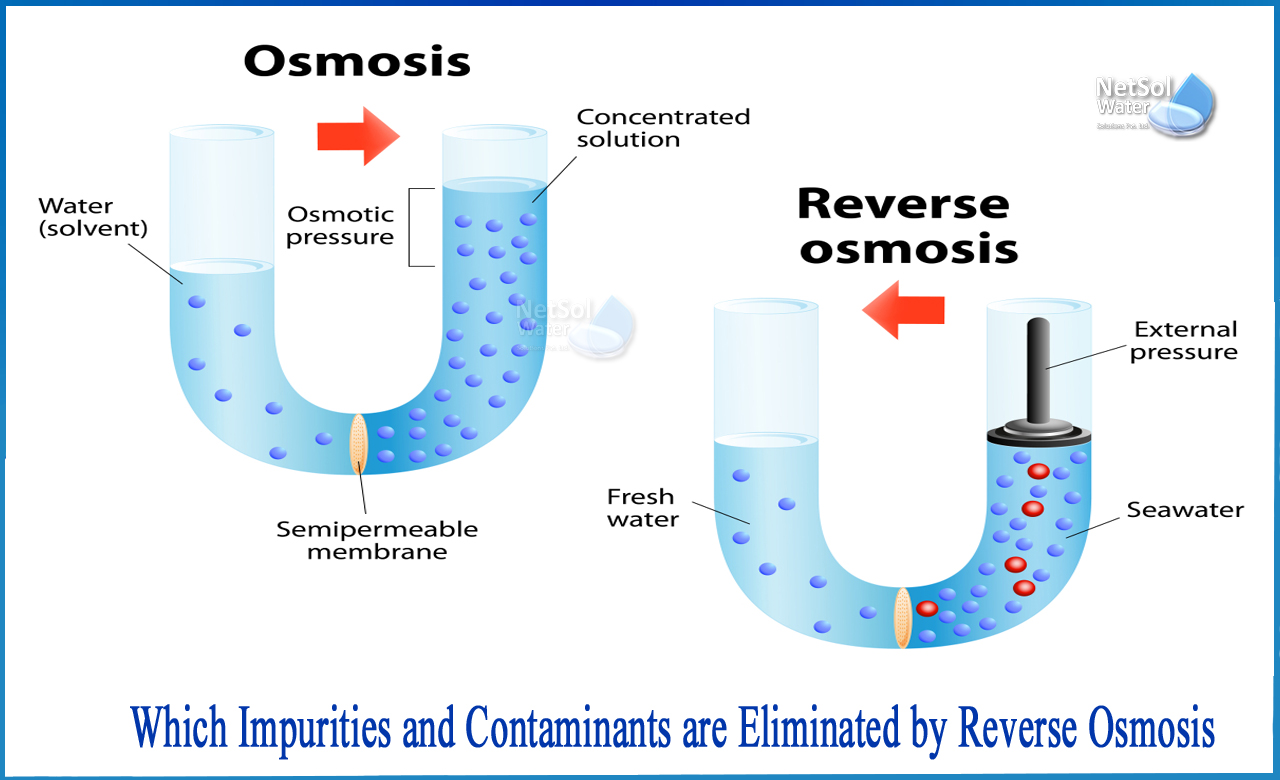What is Reverse Osmosis?
Reverse osmosis is a water purification method that uses semi-permeable membranes to remove pollutants. In Reverse Osmosis, water is forced to flow in the opposite direction of its natural concentration gradient, from a lower to a higher concentration.
The pores in the semi-permeable membrane are extremely small, measuring only 0.0001 microns in diameter. This is how this membrane can filter out up to 99 percent of contaminants from your water or wastewater source.
Which impurities and contaminants are eliminated by RO?
Heavy metals including magnesium, lead, copper, and salt can be removed via reverse osmosis. It's also quite good at getting rid of chlorine. It can also lower sulphate, radium, arsenic, and a variety of other dangerous elements in your water supply. Fluoride, as well as numerous herbicides and pesticides, are removed from your water via reverse osmosis. These can be quite dangerous to your health, and a small investment could help you avoid them.
What are the benefits of Reverse Osmosis?
The follow?ing are some of the advantages of using a reverse osmosis water filter:
1: Impurities are completely eliminated: 99 percent of contaminants are removed from RO water. It's also good in getting rid of salts. The semi-permeable barrier filters bacteria and viruses while also protecting you from waterborne illnesses. You also won't have to worry about heavy metals like lead, salt, chlorine, and other contaminants. 98 percent of total dissolved solids are eliminated from RO water.
2: Odourless water: There are no volatile organic chemicals in RO water. The foul taste or odour in your water is caused by these substances. Ordinary water filters, while good at eliminating contaminants, aren't always effective at removing odours.
3: Durable: The performance of reverse osmosis systems is rated for many years. They can, however, endure much longer if properly cared for.
What is a Water Distiller?
Water distillation is a method that has been used for a long time, and for good reason. Distillation ensures that you are supplied with pure water by removing a wide spectrum of soluble and organic contaminants.
Water that is free of minerals and additives!
Water distillation can also help to remove some of the hardness from water. This incredibly successful procedure assures that you receive pure, additive-free water. You can get clean water if there are no undesirable minerals in it.
The distillation process
Water distillation has been used for a long time as a method of purification. It is based on the natural water cycle's main premise. The boiling of polluted water is the first stage. The steam is subsequently condensed, resulting in the collection of clean water. This method is thought to be effective because it removes 99.9% of contaminants.
What impurities are removed during water distillation?
The efficiency of water distillation is good. It may also remove soluble mineral contaminants from water and work on hard water.
Distillation eliminates all minerals from water, whereas reverse osmosis uses membranes to remove most, if not all, minerals.
All this discussion leads to the fact that since heating water can be a good idea to remove TDS but RO proves to be more efficient and easier.
Technical assistance and guidance
Netsol Water collaborates with a wide range of international organizations to tackle complicated RO problems by strategically integrating modern treatment technology with practical solutions.
Netsol Water is Greater Noida-based leading water & wastewater treatment plant manufacturer. We are industry's most demanding company based on client review and work quality. We are known as best commercial RO plant manufacturers, industrial RO plant manufacturer, sewage treatment plant manufacturer, Water Softener Plant Manufacturers and effluent treatment plant manufacturers. Apart from this 24x7 customer support is our USP. Call on +91-9650608473, or write us at enquiry@netsolwater.com for any support, inquiry or product-purchase related query.



